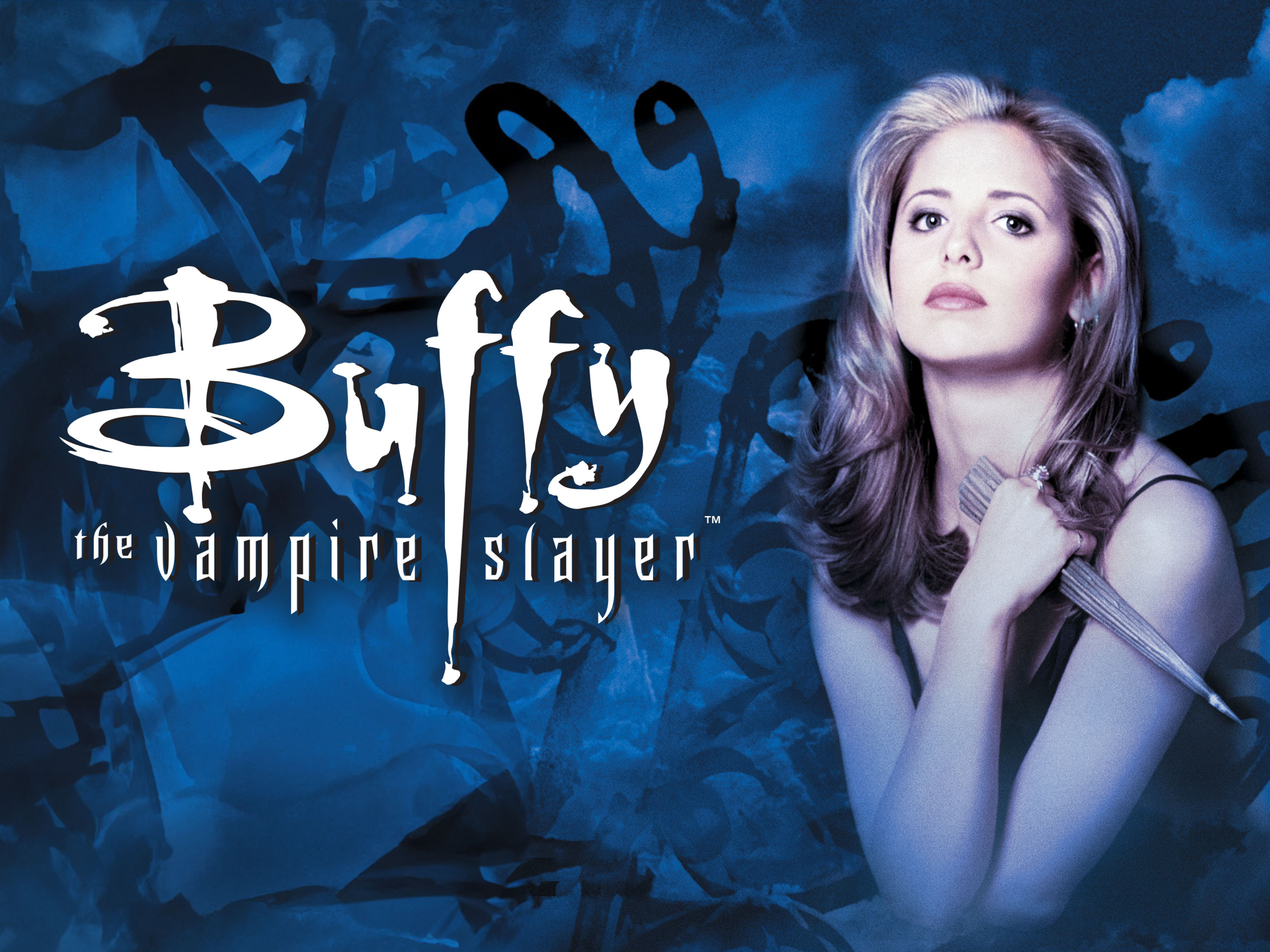Movie
‘Speak No Evil’: Chop-chop-CHOP
A struggling couple with their young daughter are invited to spend an idyllic weekend at a newly made friend’s country house, that hides a whole bunch of nasty secrets!
Normally, a review consists of a few paragraphs of expounding on the movie and then the ranted opinion itself, closing with a recommendation as to whether or not Moxie recommends going to see said film. Speak No Evil is a very weird exception, for there is very little in the way of plot to follow, and the would-be horror devolves into cheap scares and dumbassery for us to laugh at. When the theater audience has cat-callers hooting and calling out the protagonist dad figure of the film and there is no censure from anyone else, you’re doing something wrong. But, let’s attempt a dive anyway!
So Ben (Scoot McNairy) and Louise (Mackenzie Davis) Dalton are struggling, with life, with career and money trouble of course, and perhaps most importantly but less often spoken of, with each-other. Whilst trying to hide it all from their sensitive bunny-stricken daughter Agnes (Alix West Lefler) too, of course. They somehow took a vacation runaway of sorts to Tuscany of all places, where they stay in a villa with a few other vacationers, bonding over the one annoying couple no-one else likes with new friends Paddy (James McAvoy) and Ciara (Aisling Fraciosi) and their apparently nonverbal kid Anthony or Ant (Dan Hough). Later, after a reminder postcard with the extended offer of a weekend stay at their country home is again extended to the Daltons, the two parental units decide it would be a good idea to run away some more and off they go, with Agnes and Hoppy in tow!
It’s amazing that the Dalton parents know so little about Paddy and Ciara and still decide to spend a weekend with them at their run-down country house. And just as soon as they do finally find the place, Paddy goes from the amiable fellow-dad to sympathize and bro-mance with, to an opinionated antagonistic competitor, who has to have his way about absolutely everything. It begins with the named goose he cooked for their first dinner there, despite being well aware Louise is vegan, and escalates to trying to instigate Ben into being more manly and take-charge, to serious disagreements in the way Paddy tries to raise his not-quite-mute kid, and finally the Dalton parents begin to realize perhaps this wasn’t such a good idea.
It’s often the children in these stories who provide the horrific reveal of what the villain, or villains, have been up to, and Speak No Evil is no different in this regard. Little Dan Hough gives a striking and ghastly performance as Ant, chop-chop-chopping his way through a silent explanation of what actually happened to his poor tongue. The brilliant way Agnes gets her parents alone to inform them of Ant’s new information is one of the few bright, smart spots of the entire movie. And after the Daltons have finally understood the true nightmare of their situation and their very real need to escape, the film basically degenerates into a kind of reverse home invasion horror flick, as the Daltons try to hide amidst the country house of our baddies trying to hunt them down!
None of it is enough. No reason was ever given as to why Paddy the purported former doctor is like this, why he needs to OCD his trophies to the point of an incriminating evidence locker, why Ant was the one to finally find the courage to fight back, why the hell Ben is such a freaking milquetoast of a human one can’t even consider him the head of the Dalton family, why Louise is still putting up with all this nonsense over the safety of her beloved daughter, and why hasn’t the authorities or the families of other victims kicked up any kind of ruckus by now? Why is the neighboring handyman type Mike (Kris Hitchen) in league with our villainous couple to the point where he takes to hunting the Daltons with shotgun in tow, too? The film is apparently a remake of a 2022 Danish film of the same name, and we have to ask, why did anyone think the film market needed such a thing? Well, whatever.
Cover your mouth to keep from yelling common-sense advice to the deplorably naïve characters on the screen and catch Speak No Evil in theaters now!
Movie
A Brief Review and History of A Year Without a Santa Claus

A Year Without a Santa Claus, the 1974 stop-motion holiday classic produced by Rankin/Bass, is a heartwarming and whimsical tale that has cemented its place in holiday traditions. Based on Phyllis McGinley’s 1956 book, the story revolves around a disheartened Santa Claus who, feeling unappreciated, decides to take a year off from his Christmas duties. It’s up to Mrs. Claus and a pair of well-meaning elves, Jingle and Jangle, to reignite the Christmas spirit and show Santa the world’s unwavering belief in him.
The movie is beloved for its unforgettable characters, especially the bickering Miser Brothers, Snow Miser and Heat Miser. Their catchy, vaudeville-style musical numbers, “Snow Miser Song” and “Heat Miser Song”, are so iconic they’ve become cultural touchstones, often parodied and celebrated decades later.
Directed by Arthur Rankin Jr. and Jules Bass, the film continues the duo’s tradition of stop-motion magic, blending heartfelt storytelling with quirky humor. The voice cast, featuring Mickey Rooney as Santa and Shirley Booth as Mrs. Claus, delivers standout performances. Booth’s warm narration was her final acting role before retirement, adding a layer of poignancy to the film.
Initially released on December 10, 1974, on ABC, the special didn’t immediately achieve the legendary status of Rudolph the Red-Nosed Reindeer. However, it gained a dedicated following through annual holiday airings, nostalgic appeal, and its distinct charm.
The film’s themes of hope, unity, and rekindling joy remain timeless, making it a perennial favorite for audiences of all ages. Its blend of humor, catchy songs, and a touching message about believing in magic and goodwill ensures its enduring legacy during the holiday season.
For fans of holiday classics, A Year Without a Santa Claus is a must-watch that never fails to warm hearts and spread cheer.
Movie
Holiday Movie Review: Violent Night
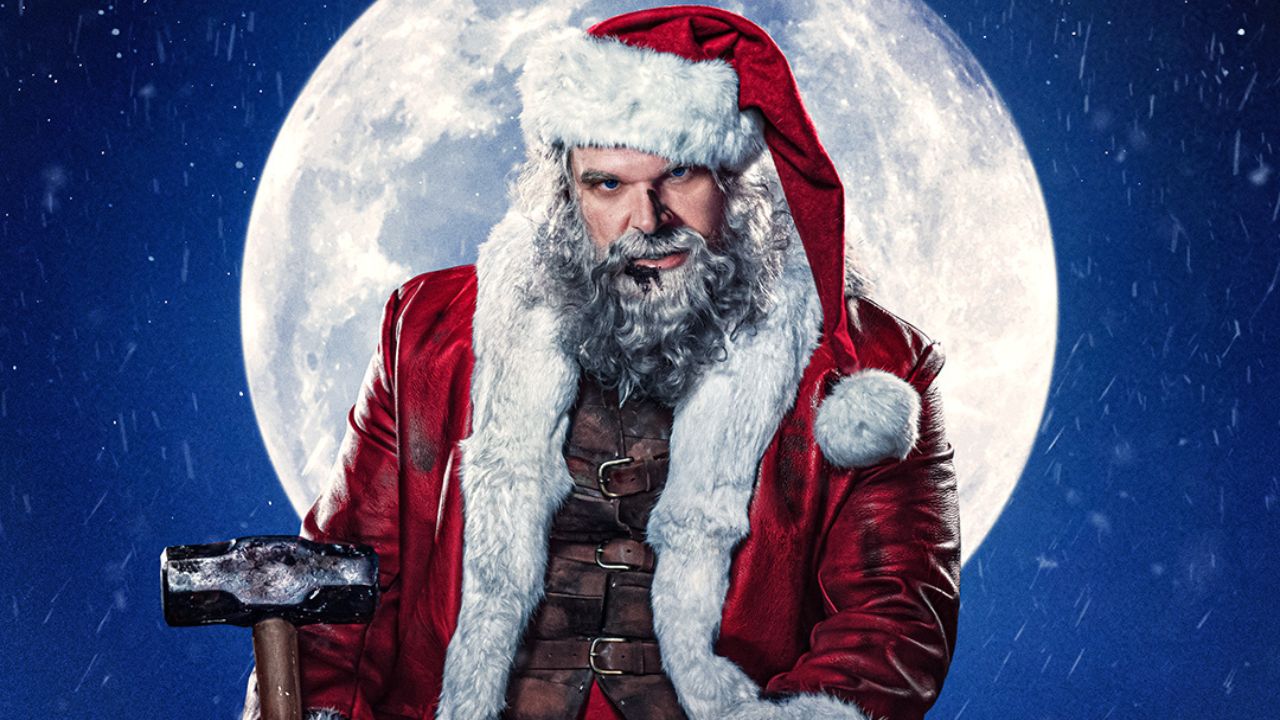
Violent Night (2022), starring David Harbour as a rugged, action hero Santa, delivers a wildly entertaining twist on holiday films. Combining dark humor, brutal action, and unexpected heart, the movie follows Santa as he defends a family held hostage on Christmas Eve. Harbor shines as a jaded yet surprisingly endearing Santa, bringing grit and charm to the role. The film’s blend of holiday magic and high-octane violence is reminiscent of Die Hard but with a festive twist.
Director Tommy Wirkola balances the chaotic fight scenes with moments of redemption and holiday spirit, creating a surprisingly satisfying narrative. While the film isn’t for traditionalists (its R-rating is well-earned), it’s perfect for fans of unconventional holiday fare.
Rating: 8/10: A bold, bloody, and refreshingly unique holiday film that’s destined to become a cult classic.
Movie
The Grinch vs. The Grinch: Jim Carrey vs. Benedict Cumberbatch – Who Played the Better Green Grump?
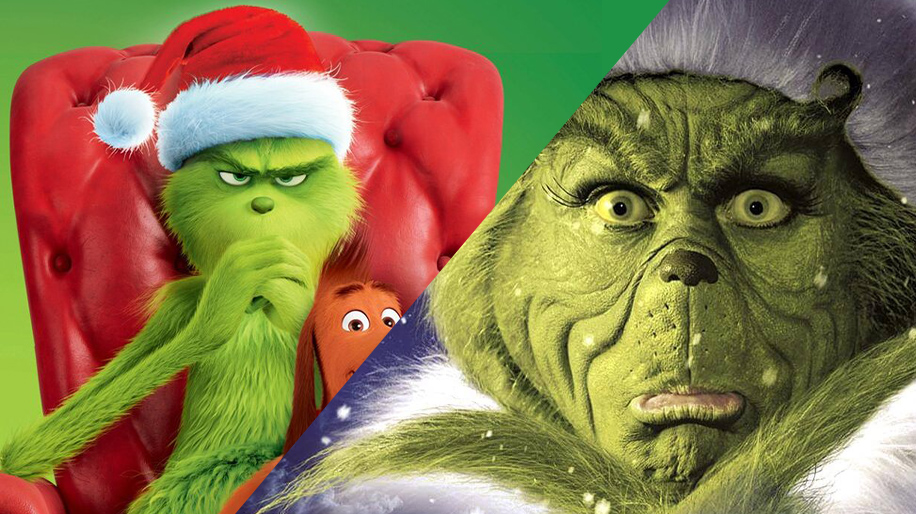
Dr. Seuss’s beloved character, the Grinch, has been brought to life in two iconic adaptations: Ron Howard’s How the Grinch Stole Christmas (2000), starring Jim Carrey, and Illumination’s The Grinch (2018), featuring the voice of Benedict Cumberbatch. While both films capture the essence of the Grinch’s transformation, their execution, tone, and performances make for an interesting comparison.
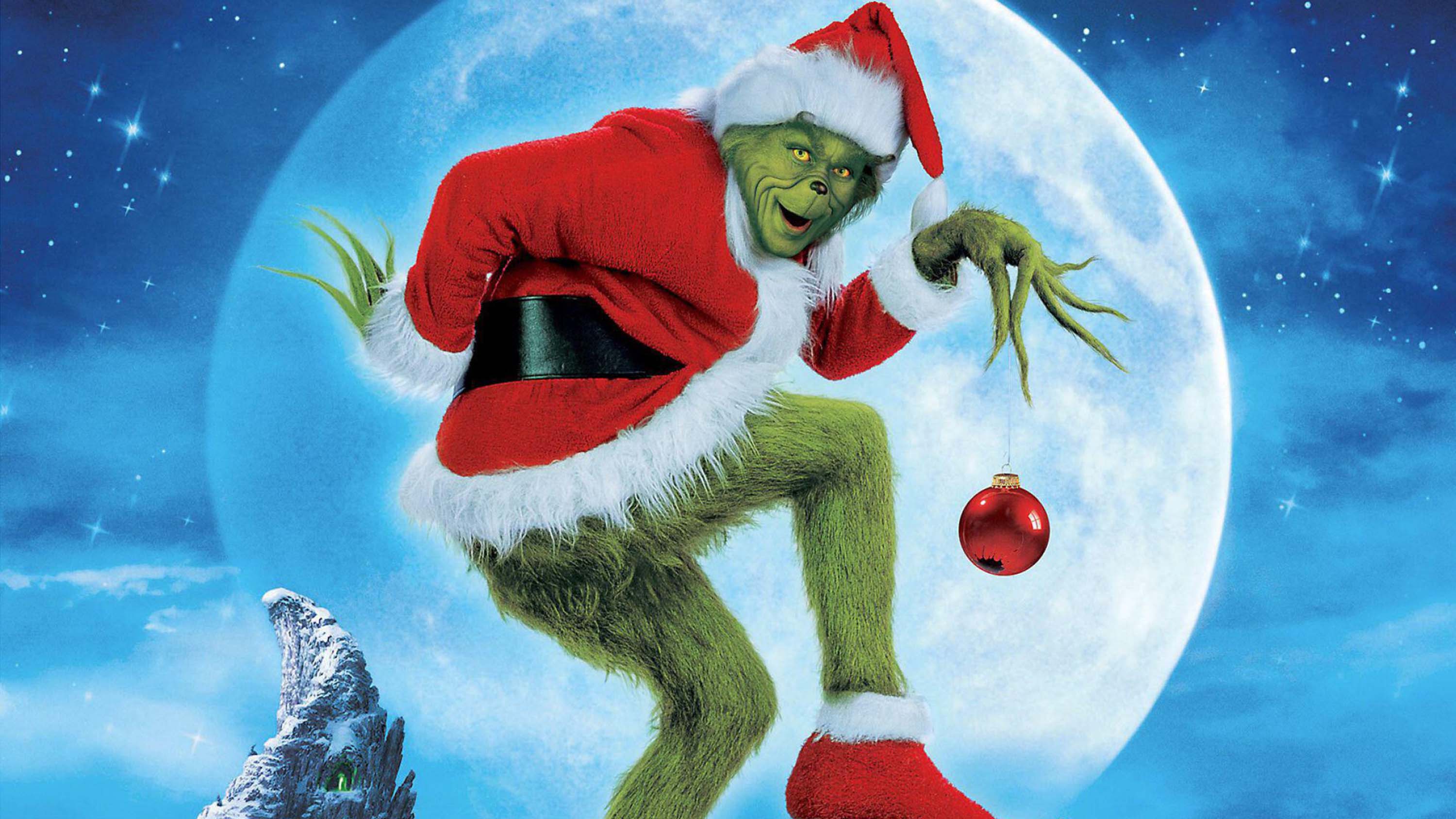
Jim Carrey’s Grinch (2000)
Ron Howard’s live-action adaptation is a bold, larger-than-life take on the classic tale. Jim Carrey’s portrayal is a masterclass in physical comedy and eccentricity. His Grinch is chaotic, sarcastic, and hilariously over-the-top, with Carrey’s boundless energy infusing the character with a manic charm that makes every scene memorable.
This version delves into the Grinch’s backstory, giving him a tragic childhood that explains his hatred for Whoville and Christmas. While this added depth works for some, others felt it detracted from the simplicity of the original story. The film’s whimsical production design and Danny Elfman’s score perfectly complement Carrey’s performance, but the humor occasionally skews more adult, which may alienate younger viewers.
Illumination’s The Grinch opts for a gentler, more family-friendly approach. Benedict Cumberbatch’s voice work offers a softer, more subdued interpretation of the character. This Grinch is more relatable and less cruel, making his eventual redemption feel heartwarming but less impactful.
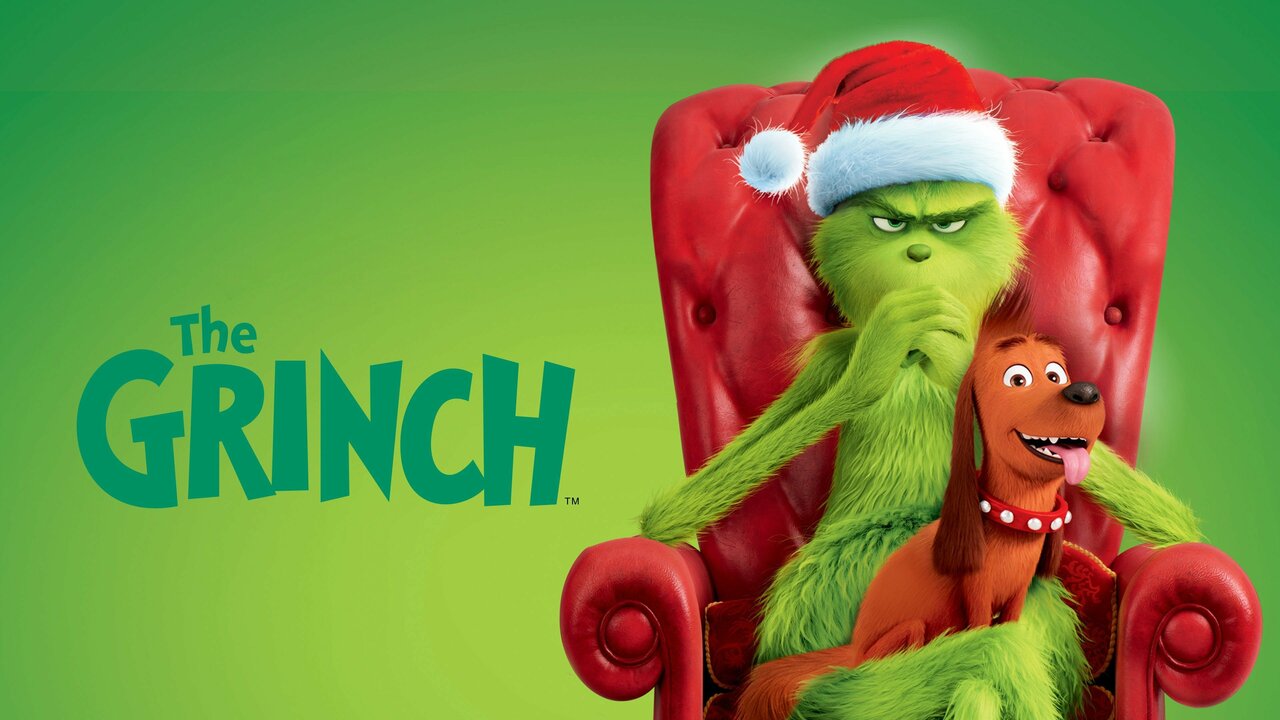
Benedict Cumberbatch’s Grinch (2018)
The animation is visually stunning, capturing the colorful charm of Dr. Seuss’s world. The narrative sticks closer to the original book, with a few modern twists (like a subplot involving Cindy Lou Who’s quest to help her overworked single mom). Pharrell Williams’s narration and playful soundtrack give the film a contemporary vibe that resonates with children and families. However, Cumberbatch’s Grinch lacks the wild unpredictability that made Carrey’s performance unforgettable.
While both films have their merits, Jim Carrey’s Grinch stands out as the more iconic portrayal. Carrey’s physicality, comedic timing, and ability to humanize the character elevate the 2000 film, making it a definitive version for many fans. Benedict Cumberbatch’s Grinch, while charming and visually delightful, feels safer and less memorable in comparison.
Winner: Jim Carrey For its sheer energy, humor, and enduring impact, How the Grinch Stole Christmas (2000) with Jim Carrey remains the ultimate Grinch experience.


